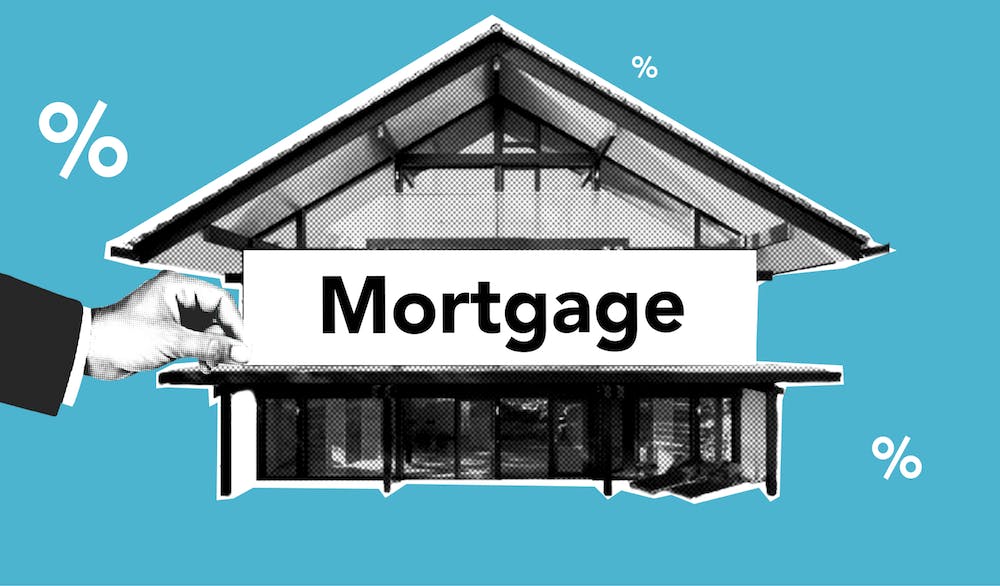How to Get a Home Loan with a High Debt-to-Income Ratio
 If you have a high debt-to-income ratio (DTI), you might think that getting a home loan is impossible. But don’t lose hope! There are still some options for you to achieve your dream of homeownership. In this blog post, we will explain what DTI is, why it matters for lenders, and how you can improve your chances of getting approved for a home loan with a high DTI.
If you have a high debt-to-income ratio (DTI), you might think that getting a home loan is impossible. But don’t lose hope! There are still some options for you to achieve your dream of homeownership. In this blog post, we will explain what DTI is, why it matters for lenders, and how you can improve your chances of getting approved for a home loan with a high DTI.
 What is DTI and why does it matter?
What is DTI and why does it matter?
 DTI is a measure of how much of your monthly income goes towards paying your debts. It is calculated by dividing your total monthly debt payments by your gross monthly income. For example, if you pay $1,500 in debt payments and earn $5,000 per month, your DTI is 30%.
DTI is a measure of how much of your monthly income goes towards paying your debts. It is calculated by dividing your total monthly debt payments by your gross monthly income. For example, if you pay $1,500 in debt payments and earn $5,000 per month, your DTI is 30%.
 Lenders use DTI as one of the factors to determine your ability to repay a home loan. A high DTI means that you have less money left over after paying your debts, which could make it harder for you to afford your mortgage payments. Generally, lenders prefer borrowers with a DTI of 36% or lower, although some may accept higher ratios depending on other factors such as credit score, down payment, and income stability.
Lenders use DTI as one of the factors to determine your ability to repay a home loan. A high DTI means that you have less money left over after paying your debts, which could make it harder for you to afford your mortgage payments. Generally, lenders prefer borrowers with a DTI of 36% or lower, although some may accept higher ratios depending on other factors such as credit score, down payment, and income stability.
 How to get a home loan with a high DTI?
How to get a home loan with a high DTI?
 If your DTI is above 36%, you may still qualify for a home loan if you can show that you have a strong financial profile in other areas. Here are some tips to help you get a home loan with a high DTI:
If your DTI is above 36%, you may still qualify for a home loan if you can show that you have a strong financial profile in other areas. Here are some tips to help you get a home loan with a high DTI:
 – Improve your credit score. A higher credit score can offset a high DTI by showing lenders that you have a good history of managing your debts and making payments on time. You can improve your credit score by paying your bills on time, keeping your credit card balances low, and avoiding new debt applications.
– Improve your credit score. A higher credit score can offset a high DTI by showing lenders that you have a good history of managing your debts and making payments on time. You can improve your credit score by paying your bills on time, keeping your credit card balances low, and avoiding new debt applications.
– Save for a larger down payment. A larger down payment can reduce the amount of money you need to borrow and lower your monthly mortgage payments. This can also lower your loan-to-value ratio (LTV), which is another factor that lenders consider when evaluating your risk level. A lower LTV means that you have more equity in the property and less chance of defaulting on the loan.
– Choose a more affordable property. The price of the property you want to buy will affect how much you need to borrow and how much your monthly mortgage payments will be. By choosing a more affordable property, you can reduce your debt burden and increase your chances of getting approved for a home loan.
– Consider different loan programs. Some loan programs are designed for borrowers with high DTI ratios or low credit scores. For example, FHA loans are backed by the Federal Housing Administration and allow borrowers to have a DTI of up to 43% and a credit score of as low as 580. VA loans are guaranteed by the Department of Veterans Affairs and have no DTI or credit score requirements for eligible veterans and service members. USDA loans are sponsored by the Department of Agriculture and offer 100% financing for rural properties with low or moderate income borrowers.
– Shop around for different lenders. Different lenders have different criteria and standards for approving home loans. Some may be more flexible or lenient than others when it comes to high DTI ratios. You can compare different lenders’ rates, fees, and terms online or through a mortgage broker to find the best deal for your situation.
 Getting a home loan with a high DTI is not impossible, but it does require some extra effort and planning. By following these tips, you can improve your financial profile and increase your chances of getting approved for a home loan with a high DTI.
Getting a home loan with a high DTI is not impossible, but it does require some extra effort and planning. By following these tips, you can improve your financial profile and increase your chances of getting approved for a home loan with a high DTI.

